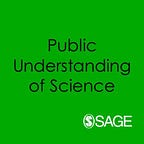Newton’s Chicken — science in the kitchen
Review by Juliana Adelman
Ranging widely across time and space, Bucchi offers up a menu of episodes where science and cooking meet and asks us to think about what it means and what it can tell us about our perception of science and scientists.
When I opened Massimiano Bucchi’s highly readable and entertaining account of science in the kitchen, I immediately thought of another book. On a shelf in my pantry rests The Food Lab: Better Home Cooking Through Science by chef Kenji Lopez-Alt. This book obsessively documents experiments in pursuit of the perfect recipe. I had previously considered the cookbook a kind of irresistible gimmick. After reading Newton’s Chicken, I found myself thinking about the way that it expresses a particular social value for science. The authority of the book rests not just on Lopez-Alt’s significant reputation but also on a shared cultural idea of the infallible scientific method as a way to make things better, even home cooking.
This relationship between science and cookery, and what it says about the public understanding and communication of science, is the subject of Newton’s Chicken. Ranging widely across time and space, Bucchi offers up a menu of episodes where science and cooking meet and asks us to think about what it means and what it can tell us about our perception of science and scientists.
Each of the essays is thought-provoking and filled with engaging anecdotes, most of them historical. The book is divided into four parts (starter, main, drinks, dessert) with chapters loosely focused on different types of food. The chapters are very short, some of them only two or three pages.
Bucchi’s introduction sets up the idea that science in the kitchen (using the example of its appearance on an Italian science television programme) offers the opportunity for extending the authority of science, for demonstrating that science underpins ordinary life even when we choose to ignore it. In the common-sense space of pots and pans and cookery, science is revealed as the explanation even for those activities we perform in ignorance of its precepts. The TV segment on the science of mayonnaise shows housewives that their methods curdle in the face of scientific meddling and an entry on ‘chicken’ in the Enlightenment Encyclopedie is an opportunity to ridicule common-sense practices of cookery and promote science.
But other relationships between science and cookery are also explored. Equating science with cooking, for example, is seen as a way to discredit scientists or science. Stanley Pons and Martin Fleischmann, who claimed to discover cold fusion, were compared to poor home cooks. Woody Allen used an imagined series of experimental sandwiches to poke fun at the scientific method (in a way very similar to Jonathan Swift’s digs at the Royal Society in Gulliver’s Travels). The coffeehouse is both a place of scientific concerns about the effects of the drink and a space in which early modern scientists demonstrate experiments in public, thus gaining credibility for their results.
The final section, Dessert, includes chapters that are perhaps the most closely related to the theme. Bucchi begins with Brillat-Savarin’s demand for a scientific gastronomy and proceeds through scientific celebrities who used their celebrity to promote science in the household and in the kitchen to the appearance of futuristic food and molecular gastronomy.
I thoroughly enjoyed this book. The writing is stylish, the research is excellent and Bucchi provides much food for thought (sorry, many more puns to follow). My only complaint is that it felt like a tasting menu when many of the chapters had the potential to provide a substantial meal unto themselves. I found myself hungry for more. In particular, I would have enjoyed a greater attempt to link the chapters together throughout the text, rather than saving it for the digestif. Nonetheless I would highly recommend the book and, without any authority, award it a bib gourmand.
Juliana Adelman is an assistant professor of history at Dublin City University, Ireland, a columnist with The Irish Times, and a podcaster on food. Her most recent publication is Civilised by Beasts: animals and urban change in nineteenth century Dublin (Manchester University Press, 2020).
